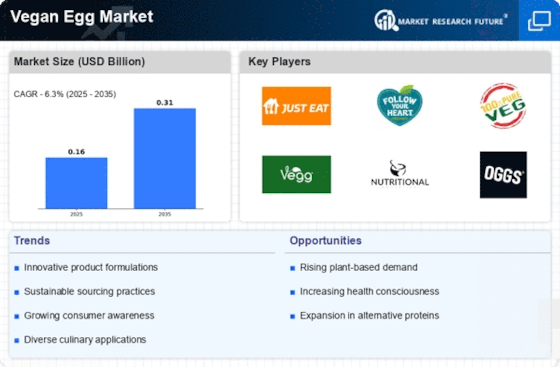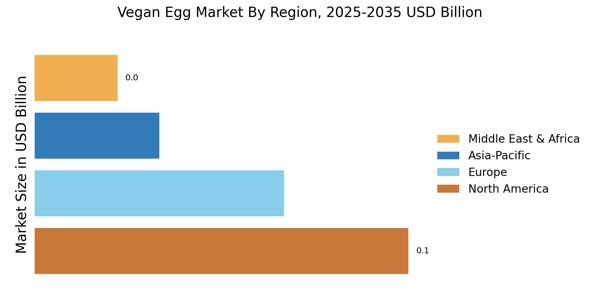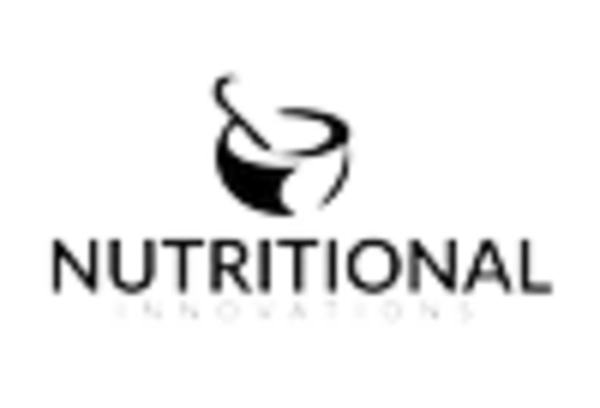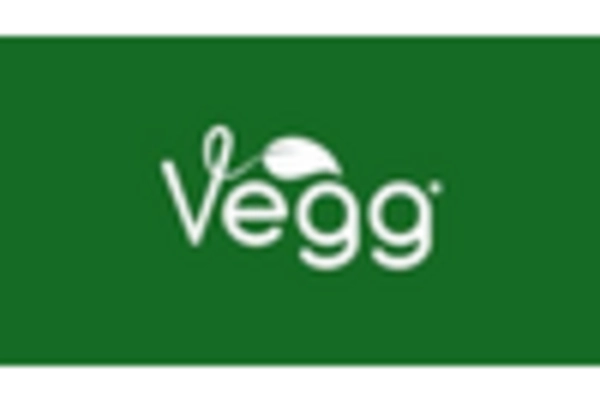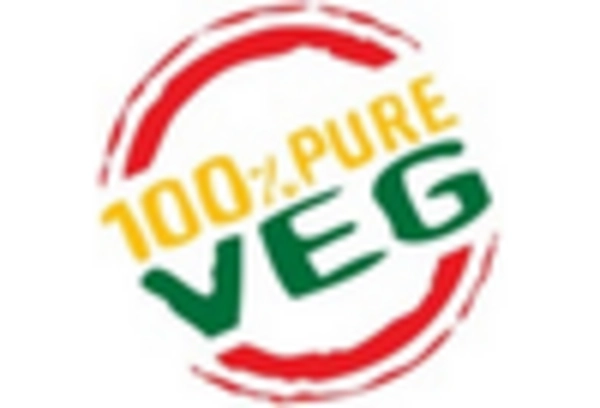Rising Demand for Plant-Based Alternatives
The Vegan Egg Market is experiencing a notable increase in demand for plant-based alternatives, driven by a growing consumer preference for healthier and more sustainable food options. As individuals become more health-conscious, they are actively seeking alternatives to traditional animal-based products. This shift is reflected in market data, which indicates that the plant-based food sector is projected to reach a valuation of approximately 74 billion dollars by 2027. The Vegan Egg Market is poised to benefit from this trend, as consumers increasingly view plant-based eggs as a viable substitute for their animal counterparts. This demand is further fueled by the rise of veganism and flexitarian diets, which encourage the consumption of plant-based foods. Consequently, manufacturers are responding by innovating and expanding their product lines to cater to this evolving consumer landscape.
Expansion of Retail and Distribution Channels
The Vegan Egg Market is witnessing an expansion of retail and distribution channels, which is facilitating greater accessibility to plant-based egg alternatives. As consumer interest in vegan products grows, retailers are increasingly incorporating these items into their offerings. This trend is evident in the rise of dedicated plant-based sections in grocery stores and the inclusion of vegan eggs in mainstream supermarkets. Market data suggests that the availability of vegan products in various retail formats is a key driver of consumer adoption. Furthermore, online shopping platforms are also playing a pivotal role in the distribution of vegan egg products, allowing consumers to conveniently access a wider range of options. This expansion of retail channels is likely to enhance the visibility and availability of vegan eggs, thereby contributing to the overall growth of the Vegan Egg Market.
Technological Advancements in Food Production
The Vegan Egg Market is benefiting from technological advancements in food production, which are enhancing the quality and variety of plant-based egg alternatives. Innovations in food science and technology have led to the development of new ingredients and formulations that closely mimic the taste and texture of traditional eggs. For instance, advancements in fermentation technology and plant protein extraction are enabling manufacturers to create products that appeal to a wider audience. Market data indicates that the plant-based egg segment is expected to grow at a compound annual growth rate of over 20% in the coming years. This growth is indicative of the increasing acceptance of vegan egg products among consumers, driven by improved sensory experiences. As technology continues to evolve, the Vegan Egg Market is likely to see further innovations that will enhance product offerings and attract new customers.
Environmental Concerns and Ethical Considerations
The Vegan Egg Market is significantly influenced by rising environmental concerns and ethical considerations surrounding animal agriculture. Consumers are becoming increasingly aware of the environmental impact of traditional egg production, which contributes to greenhouse gas emissions, deforestation, and water pollution. This awareness is prompting a shift towards plant-based alternatives, as they are perceived to have a lower ecological footprint. Market Research Future suggests that the demand for sustainable food options is on the rise, with a substantial percentage of consumers willing to pay a premium for products that align with their values. The Vegan Egg Market stands to gain from this trend, as it offers a solution that addresses both ethical and environmental concerns. As more individuals prioritize sustainability in their purchasing decisions, the market for vegan eggs is likely to expand, reflecting a broader societal shift towards responsible consumption.
Influence of Social Media and Celebrity Endorsements
The Vegan Egg Market is increasingly shaped by the influence of social media and celebrity endorsements, which play a crucial role in shaping consumer perceptions and preferences. As social media platforms become primary sources of information and inspiration for food choices, the visibility of vegan products has surged. Influencers and celebrities advocating for plant-based diets are effectively raising awareness and driving interest in vegan egg alternatives. This trend is supported by market data showing that products endorsed by well-known figures often experience a significant boost in sales. The Vegan Egg Market is capitalizing on this phenomenon, as brands collaborate with influencers to promote their products and reach a broader audience. The power of social media in shaping consumer behavior cannot be underestimated, and it is likely to continue driving growth in the vegan egg segment as more individuals seek to align their diets with popular trends.


